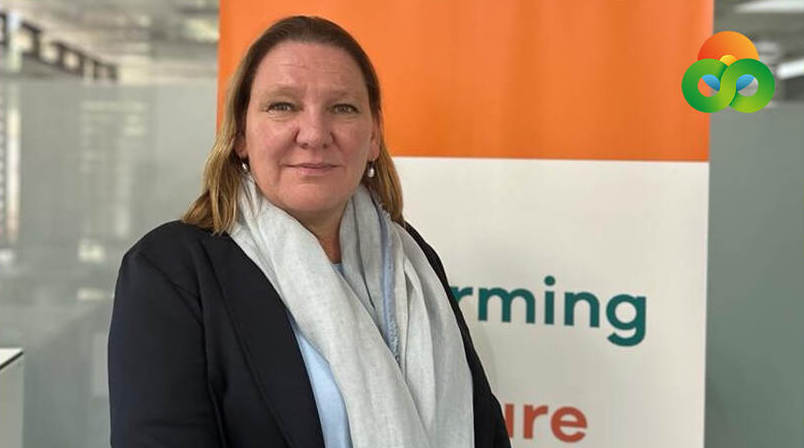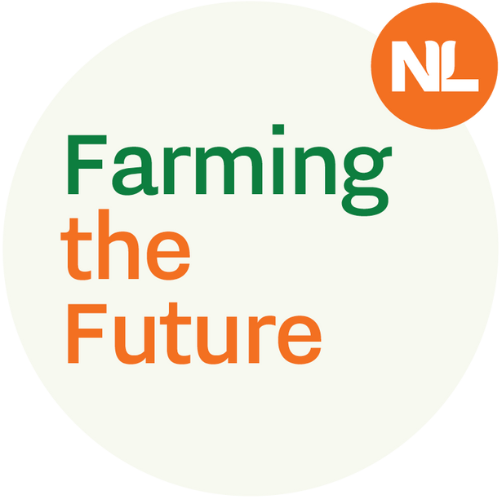A Conversation with Agricultural Counsellor for GCC-countries Simone Landhuis
Dutch Greenhouse Delta collaborates closely with the Agricultural Council for the GCC countries, based in Riyadh. This translated article with Simone Landhuis was published on Agro Berichten Buitenland on February 22, 2024.
The challenges in the Gulf States (Saudi Arabia, the United Arab Emirates, Oman, Bahrain, Kuwait, and Qatar) are immense. However, their ambitions are equally significant. Agricultural Counsellor for GCC-countries, Simone Landhuis, based at the Dutch embassy in Riyadh, aims for the Netherlands to be recognized as the logical partner for knowledge and technology, sustainability, and biodiversity.
Originating from the Dutch countryside and with a father in the meat industry, Landhuis has been familiar with the agricultural world from an early age. “I wanted to become a veterinarian,” shares Simone Landhuis, “but I wasn’t selected. So, I studied German. During my university years, I developed an interest in politics, which led me to study International Relations.”
Her career has been diverse. “I’ve worked in banking and the automotive industry, and more recently for the government, now at the Ministry of Agriculture, Nature and Food Quality. Before this, I spent over 20 years in diplomatic service at the Ministry of Foreign Affairs, including roles in Kuwait and Bahrain as Deputy Ambassador. I’m well-acquainted with the Gulf region.”
Since September 2023, she has served as Agricultural Counsellor at the Dutch embassy in Saudi Arabia’s capital, Riyadh. “It’s a large city,” Landhuis explains, “featuring parks for recreation and cooling. Summers can reach 50 degrees Celsius here! Currently, the weather is much more pleasant, similar to Dutch summers, allowing for outdoor activities like sports and visiting agricultural projects.”
The Need for Greater Food Sovereignty and Water
“The region is more diverse than often perceived,” she continues. “There are clear differences among the six countries, from economic openness to governance. Recent years have seen significant changes, with a growing recognition of the need for climate action. Notably, Dubai recently hosted the 28th edition of the COP (UN Climate Conference).
The drive to diversify Gulf economies away from oil, to enhance food security, is universally acknowledged. “The region aims to produce its own food, currently relying on imports for about 80% of its needs. The impacts of the war in Ukraine are keenly felt here.”
Water scarcity is another major concern. “Continual reliance on fossil water is unsustainable, and desalination is not particularly eco-friendly. Hence, there’s significant interest in Dutch high-tech greenhouses, which use minimal water and yield high production.”
Small Team, Focused Priorities
The Netherlands Agricultural Network (LAN) team in Riyadh includes three permanent members: Landhuis, agricultural advisor Sophie Hollanders, and policy support officer Ismail Adam. “We hope to soon welcome a new colleague at the Dutch Consulate-General in Dubai, expanding our team.” Temporary support from a former intern, Jesse van der Meulen, has been beneficial.
Her colleagues are highly experienced. “We collaborate effectively, both within our team and with regional colleagues. Given our wide geographical scope, we prioritize our focus on Saudi Arabia and the UAE.”
PIB Program for Knowledge Exchange
Knowledge exchange, sustainability, and promoting biodiversity are key aspects of Landhuis’s work. “The region has a significant need for skilled personnel in the agricultural sector. Our PIB (Partners for International Business) program emphasizes knowledge exchange. We adopt an integrated approach to agriculture, emphasizing not just greenhouses but also water use. Wasting a kilo of tomatoes also means wasting water. Sustainability, recycling, water conservation, and waste reduction are interconnected.”
Landhuis aims to maximize impact through initiatives like the PIB program for Saudi Arabia and the UAE, collaborating closely with a consortium of Dutch companies in the horticultural sector.
“The importance of sustainability and biodiversity cannot be overstated. We engage in events, seminars, and collaborative projects to emphasize these values. Building a greenhouse? Consider the entire supply chain to minimize waste at every stage.”
Dutch Agriculture and Technology Highly Regarded
“The Netherlands and its agricultural sector are held in high esteem here,” Landhuis notes. “This reputation opens doors, enabling meetings with key figures like the Saudi Minister of Agriculture. The region aspires to adopt the best practices and technologies, viewing the Netherlands as a logical partner in sustainability and biodiversity.”
“The agricultural ambitions here are significant. Saudi Arabia aims to reduce its dependency on food imports and begin exporting. A large greenhouse complex using Dutch technology has been established to export seasonal products to the Netherlands. There’s growing interest in strawberry cultivation and dairy products, including cheese making. Aquaculture is also expanding, with large fish farms being developed.”
Mission in Saudi Arabia and the United Arab Emirates
Looking ahead, Landhuis’s agenda includes attending Gulfood 2024 in Dubai, the region’s largest food event, featuring 60 companies at the Dutch pavilion, primarily from the dairy sector.
“Furthermore, we recently went to Qatar with the Minister for Nature and Nitrogen, Christianne van der Wal. It was my first time. The occasion for the visit was the National Day of the Netherlands at Expo Doha. There, we spoke with Van der Wal’s counterpart in Qatar, Abdullah bin Hamad bin Abdullah al Attiya, about collaboration in the area of food security.”
“A number of fairs are coming up, and in March, we have a mission focused on water technology and sustainable greenhouse construction in Saudi Arabia and the United Arab Emirates. Conversely, there is a lot of interest here in GreenTech in the Netherlands, which takes place in June in Amsterdam, because they are eager to know what we have to offer and what they can learn.”



